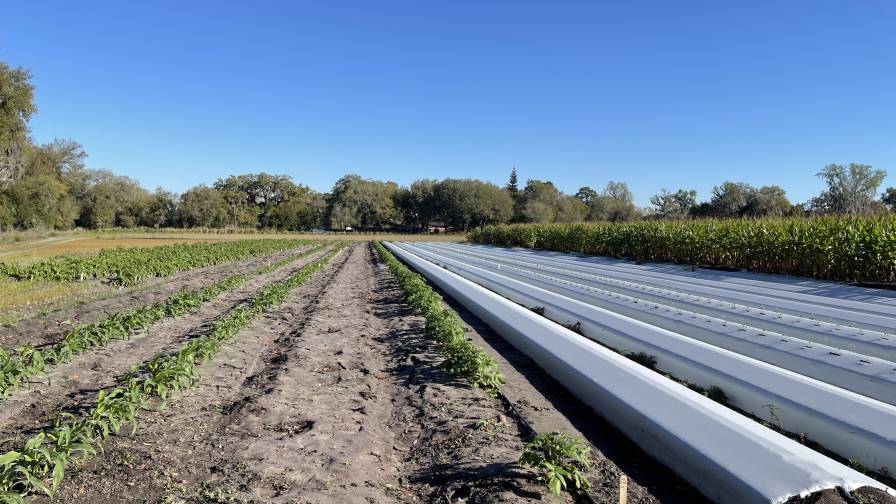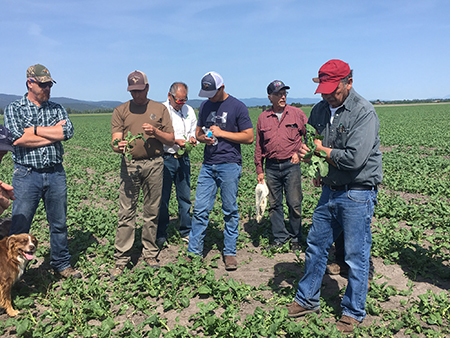State of the Agricultural Seed Market: Playing Out the M&A String
The current state of the domestic ag seed industry is one of well-positioned strength, as evidenced by the numbers in our 2017 CropLife 100 industry survey.
Up ever-so-slightly from the 2016 CropLife 100 survey’s $4,615,400 total sales numbers — retailers reported total seed sales of $4,666,800 this year — there’s reason to believe a fourth straight 12 months of positive growth isn’t that far from being reality.
For one, it bears to reason that increased merger and acquisition activity across the past 12 months will have somewhat of a lifting effect on the seed category, with companies like Syngenta already pledging increased focus and resource allocation to the segment (more on that later).
Additionally, industry giant BASF has now thrown its hat into the seed game by taking over some seed lines in order to help facilitate Bayer’s Monsanto takeover, which, according to our own Editor Eric Sfiligoj in his December 2017 summary article on CropLife 100 seed numbers, could lead to a renewed marketing push from the multinational as it enters a new market.
Basic Manufacturers Update
Speaking of Bayer-Monsanto, Jeffrey Neu, Product Communication Lead with Monsanto, told CropLife contributing writer Lisa Heacox back in November that the new combined company would use its burgeoning R&D resources to accelerate innovation in new traits and brands, and that disease management will be a “major focus” going forward.
On the Bayer side, the multinational opened a new Soybean Breeding and Trait Development Center in Champaign, IL, where research and development to identify, develop, and test new varieties, using modern breeding methods, will reportedly be the focus.
Syngenta, meanwhile, is focused on its NK retail brand. We caught up with members of the NK team at the 2017 Agricultural Retailers Association (ARA) Conference and Expo in Phoenix, AZ, where Matt Tenhaeff, NK Customer Marketing Manager, told CropLife® that recently acquired Syngenta’s seed segment is focused on building out resources to better serve its retail customers.
“Within this calendar year we’ll actually triple the size of our sales staff in order to better serve ag retailers and their customers with NK Seeds,” Tenhaeff says. “One of the key things we want ag retailers to know is we give them a unique choice in the seed market. We bring diverse genetics, we bring a collaborative approach, and we give them opportunities to use diverse genetics and diverse traits — and another option for them to serve their customers — with not only seeds but also the traits that we bring to market.”
One trend the domestic seed industry has had to wrap its arms around in the last few years is growers purchasing less and less traited seed. This is happening in part because depressed commodity markets have shrunk the budget spend many growers can dedicate to seed, and partly because years of increased trait adoption have effectively rendered once thriving populations of various below ground pests less a threat to bottom line yield.
“There’s markets where more stacked traits are being demanded, and others where more economical options are needed by growers that are in different economic situations,” Tenhaeff admits. “We also see growers seeking out more modes of action to help deal with different pest pressures, yet at the same time we’re also seeing growers manage from a managed cost perspective as well. It really comes down to the individual grower, what market they are in and what’s their agronomic need?”
Pressed further on how many growers NK is seeing manage seed from a cost-persepctive, Tenhaeff says that while that is the case in many situations, trait adoption is still driven mostly by regional agronomic issues.
“I think that growers have to buy what they need for their farms. Sure, some growers are going to go at it totally from a cost position, but I think what we’re seeing is the majority of growers look at the pest pressures and the needs that they have in certain agronomic markets, issues that they have on their own farms, and they’re going to need to buy products that fit that market.”
Wrapping up our impromptu chat, Tenhaeff mentions that NK has a proprietary HPPD chemistry that will likely be launched in the next few years, a development that he believes demonstrates NK’s commitment to innovation in the seed category.
“Today there’s a fair amount of retraction from some of our competitors because of the mergers and acquisitions that are going on, at this time we’re actually increasing our investment in our R&D business by the tune of some $80 million per year for the next five years at Syngenta Seeds, for a total of over $400 million increase in our investments in our R&D capabilities there,” he says. “We want to make sure customers know we’re really adding to our efforts, not only with people but also products and technologies.”






